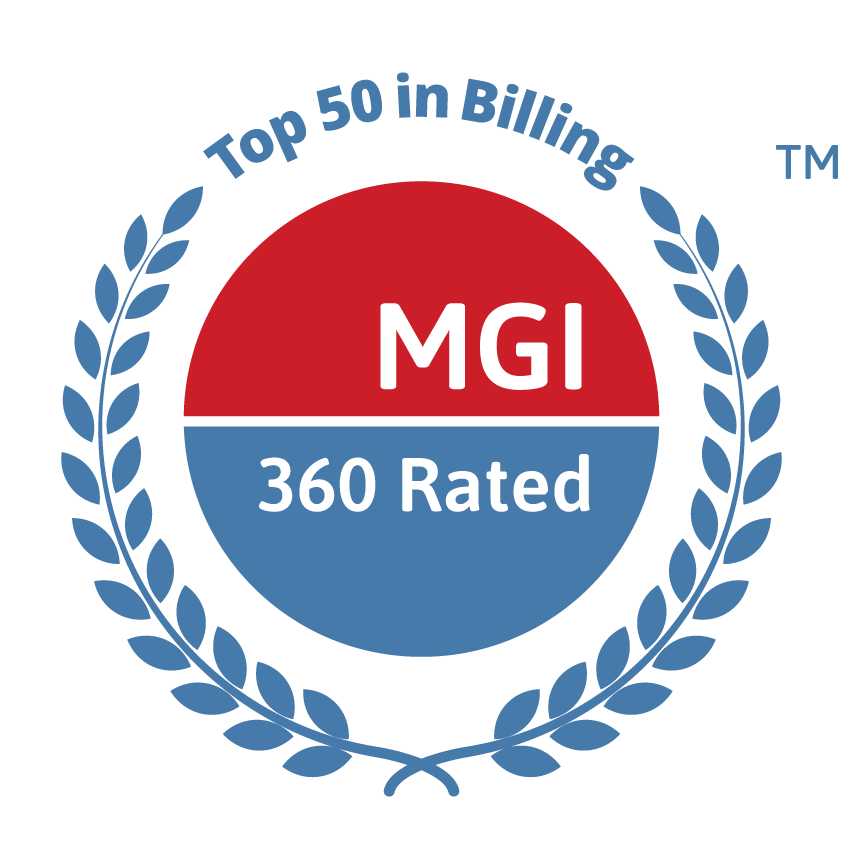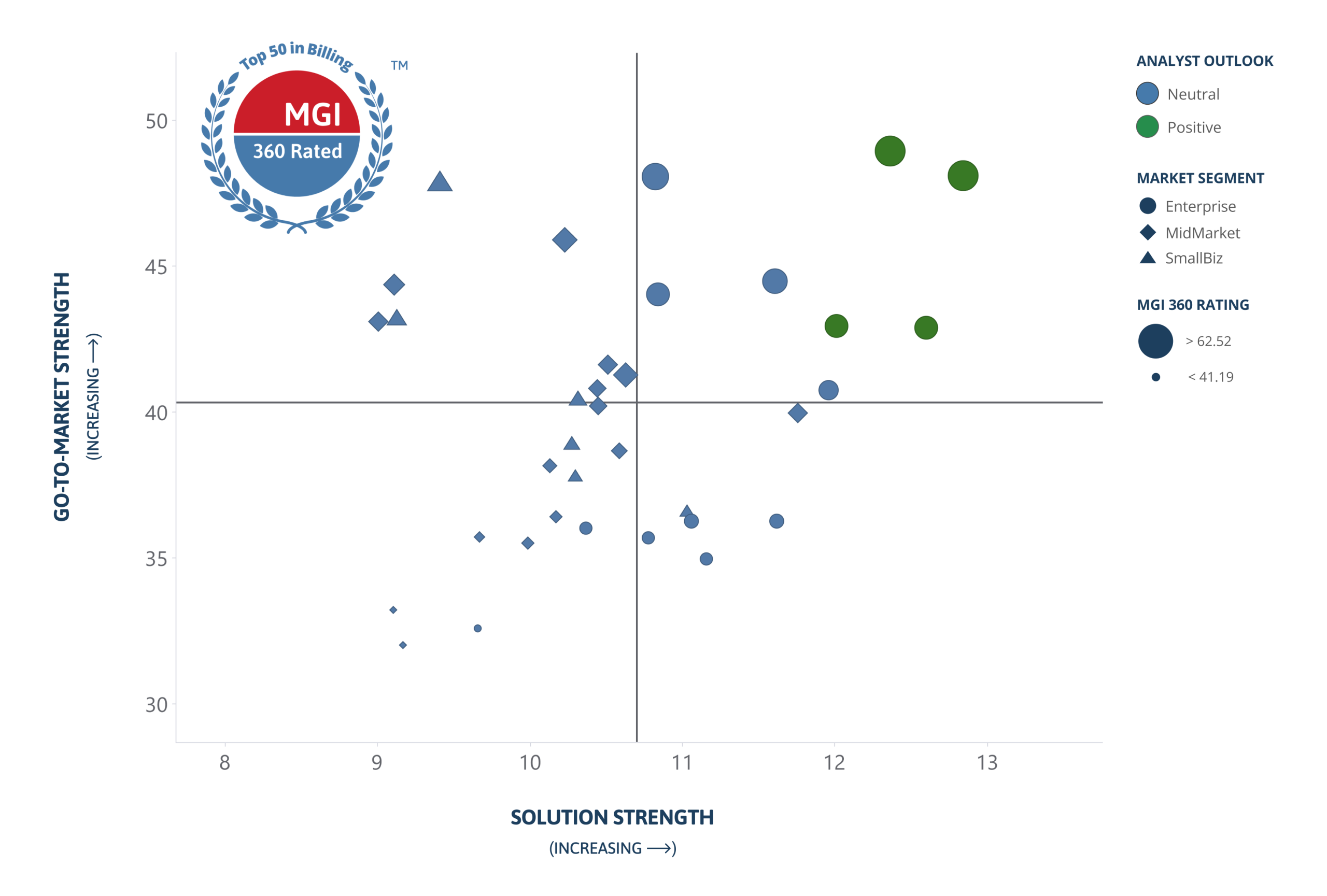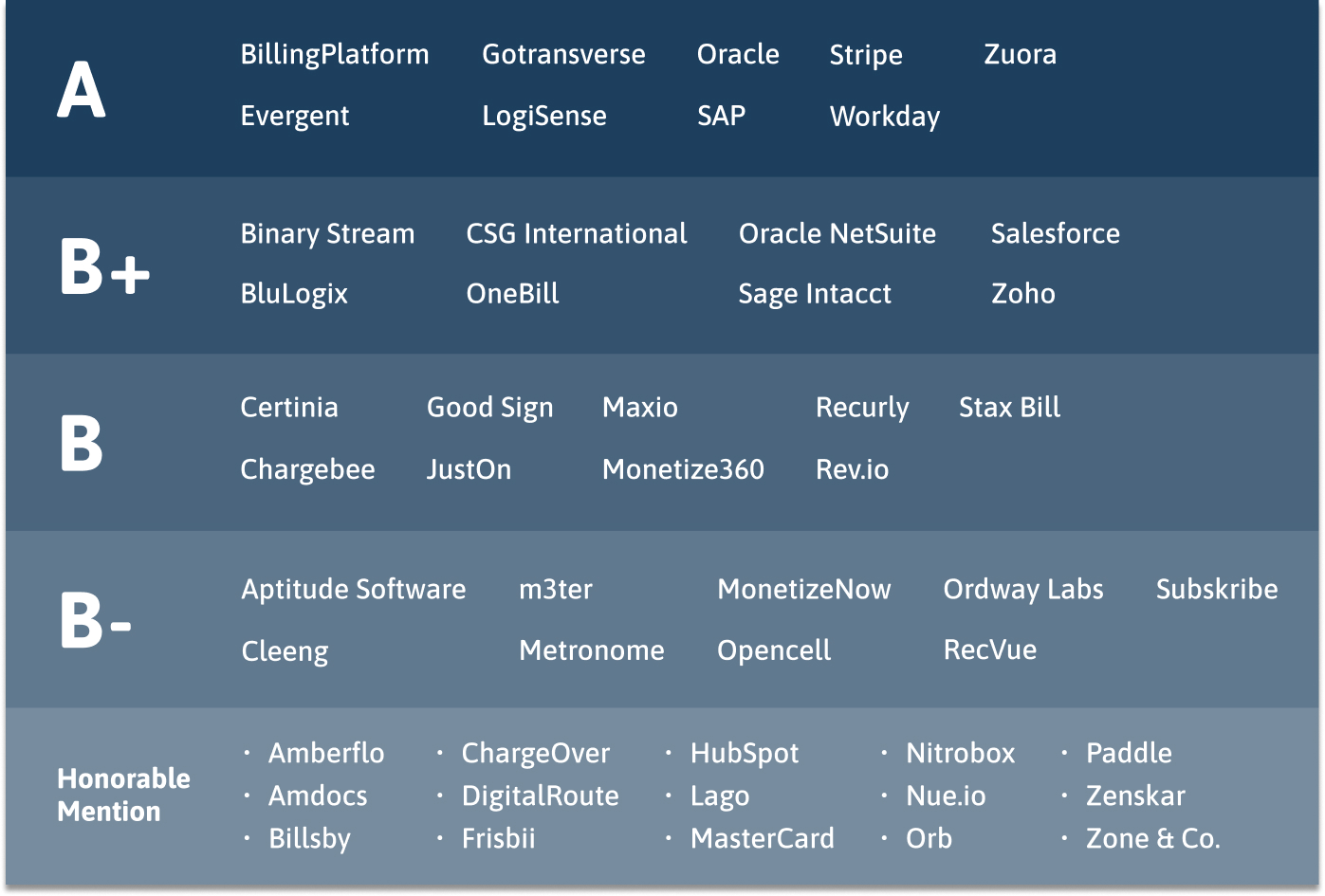 Billing is more than a back-office task or simple invoicing tool; it’s a critical strategic lever to drive growth, enhance agility, and foster customer trust. Agile billing solutions enable companies to approach pricing with creativity, package offerings flexibly, and quickly adapt to market changes, transforming a potential pain point into a significant competitive advantage.
Billing is more than a back-office task or simple invoicing tool; it’s a critical strategic lever to drive growth, enhance agility, and foster customer trust. Agile billing solutions enable companies to approach pricing with creativity, package offerings flexibly, and quickly adapt to market changes, transforming a potential pain point into a significant competitive advantage.
The challenge lies in navigating a crowded market that caters variously to SaaS billing and/or recurring billing software, usage billing and metered billing, dynamic and hybrid pricing models, and many other approaches, across a range of market segments and industries. This Buyer’s Guide is intended to help buyers, partners, and investors pinpoint a differentiated solution that meets an organization’s “sweet spot” requirements for capability, adaptability, speed, among other key demands.
This report highlights current and future agile billing market dynamics and provides analysis and MGI 360 Ratings™ of the 35 most consequential vendors.
It includes four MGI MarketLens™ charts: a set of proprietary lenses highlighting how solutions compare in terms of agility, ability to handle business complexity, support for volume, go-to-market strength, and solution strength. MGI MarketLens help buyers construct a shortlist of potential suppliers, compare an incumbent billing system with alternatives, and understand the relative strengths and weaknesses of solutions; it also gives vendors a tool for benchmarking their performance vs direct peers and the broader market.
Billing is more than a back-office task or simple invoicing tool; it’s a critical strategic lever to drive growth, enhance agility, and foster customer trust. Agile billing solutions enable companies to approach pricing with creativity, package offerings flexibly, and quickly adapt to market changes, transforming a potential pain point into a significant competitive advantage.
The challenge lies in navigating a crowded market that caters variously to SaaS billing and/or recurring billing software, usage billing and metered billing, dynamic and hybrid pricing models, and many other approaches, across a range of market segments and industries. This Buyer’s Guide is intended to help buyers, partners, and investors pinpoint a differentiated solution that meets an organization’s “sweet spot” requirements for capability, adaptability, speed, among other key demands.
This report highlights current and future agile billing market dynamics and provides analysis and MGI 360 Ratings™ of the 35 most consequential vendors.
It includes four MGI MarketLens™ charts: a set of proprietary lenses highlighting how solutions compare in terms of agility, ability to handle business complexity, support for volume, go-to-market strength, and solution strength. MGI MarketLens help buyers construct a shortlist of potential suppliers, compare an incumbent billing system with alternatives, and understand the relative strengths and weaknesses of solutions; it also gives vendors a tool for benchmarking their performance vs direct peers and the broader market.
 *Get the full report to see how 35 leading agile billing suppliers compare in terms of their solution strength vs. their go-to-market strength (a composite of management, channels, strategy, and finance scores)
*Get the full report to see how 35 leading agile billing suppliers compare in terms of their solution strength vs. their go-to-market strength (a composite of management, channels, strategy, and finance scores)
Agile Billing Vendors Under Coverage
The Agile Billing Top 50 Buyer’s Guide provides ratings and analysis of the 50 most consequential suppliers of agile billing solutions. It includes MGI 360 Ratings™ of 35 suppliers and analysis of 15 honorable mention vendors. MGI 360 Ratings are calculated via a rigorous quantitative rating and suppliers are given a letter grade based on quartile rating results, as well as the MGI analyst outlook (positive, neutral, or negative).
The 35 vendors rated in this Buyer’s Guide are Aptitude, BillingPlatform, Binary Stream, BluLogix, Certinia, Chargebee, Cleeng, CSG, Evergent, Good Sign, Gotransverse, JustOn, LogiSense, m3ter, Maxio, Metronome, Monetize360, MonetizeNow, OneBill, Opencell, Oracle, Oracle NetSuite, Ordway, Recurly, RecVue, Rev.io, Sage Intacct, Salesforce, SAP, Stax Bill, Stripe, Subskribe, Workday, Zoho, and Zuora.
The 15 suppliers under coverage but not rated (honorable mention) are Amberflo, Amdocs, Billsby, ChargeOver, DigitalRoute, Frisbii, HubSpot, Lago, MasterCard, Nitrobox, Nue.io, Orb, Paddle, Zenskar, and Zone & Co.
MGI Research tracks approximately 50 more vendors in this space and reserves the right to publish ratings and analyses on select vendors at its discretion.
What is Agile Billing?
Billing solutions support the quote-to-cash process and enable an organization to maintain complex product, price, offer, and customer hierarchies. MGI Research defines agile billing as billing solutions that are inherently intelligent and versatile in the way they are designed, implemented, and operated. The UX is modern and intuitive, making it much easier for a business user to manage and run the system. The solution can integrate with other sophisticated agile monetization tools and operate with minimal ongoing maintenance. Most, but not all, agile billing solutions are cloud-based and are applicable to a wide range of industries and use cases. Agile billing is a key element of the agile monetization platform.
Billing is at the core of pricing, packaging, and the customer experience. Done right, it can delight customers and burnish a positive brand experience. Done poorly, it damages customer, partner, and investor trust and even puts the business at risk. Unlike most technology investments, billing solutions can directly impact revenue growth, profitability, and competitive standing. For buyers, getting the right match between a billing system’s architecture and capabilities and its common use cases is essential to business success.
No organization wants to find itself limited in its business choices because its billing system cannot adequately support the desired business model. Finding the right solution fit for particular requirements makes the difference between smooth billing and project success, or customer losses, revenue shortfalls, and project failure.
This guide aims to inform anyone interested in billing – prospective buyers, customers, partners, investors – about the relative strengths, weaknesses, and ideal fit for each of the 50 leading vendors in agile billing.
Agile Billing Top 25 – Why These Companies?
There are thousands of billing software providers offering products that range from broad horizontal solutions like Stripe Billing to highly focused solutions addressing a narrower industry/geography/technology stack (e.g., Cleeng or Evergent for D2C sports and entertainment streaming). Many are standalone organizations and quite a few are captive to a larger company that includes a billing software capability as part of its product portfolio.
While MGI Research tracks hundreds of billing software suppliers, only 50 software vendors were selected for this report. These vendors are among the most consequential agile billing suppliers in the market and merit the attention of buyers, partners, and investors. This guide covers solutions supporting a wide spectrum of pricing and business models – like subscription billing, usage billing, hybrid models, etc. MGI’s survey work and research indicate customers typically (but not always) require a solution to support a range of pricing and business models and generally do not want to be locked into a single business model. As such, the solutions rated include relatively simple subscription billing tools, vertical-specific solutions, and highly sophisticated enterprise systems that can model and bill for virtually any conceivable business model.
The inclusion criteria for the Agile Billing Top 50 are based on factors such as the breadth and depth of the billing solution and its appeal to a broad audience across industries, geographies, stages of company evolution, breadth and depth of support for various business models, pricing approaches, and use cases. Company visibility, funding, and the profile of its management team and customers are also contributing factors. Typical criteria for inclusion may consist of one or more of the following (partial list):
- Market visibility: The company meets one or more of the following characteristics: above-average growth, often included in longlists and shortlists of buyer evaluations, large installed base, and/or most MGI clients express interest in the company or mention them in analyst calls.
- Innovation: The product has unique capabilities and the potential to disrupt the market – buyers should be aware of this product/company, even if it is not a fit for them today. Having AI-based capabilities and features is important, but not the only part of innovation that MGI considers.
- Solution strength: Breadth and depth of solution, support for various business models and use cases, and the supplier’s ability to help customers implement and gain value from the solution.
- Demonstrated success: Most, but not all, vendors covered are able to provide MGI with reference customers and partners to interview. Independent of the provision of vendor references (or lack thereof), MGI conducts its own interviews and field research on customers, partners, and investors.
The MGI 360 Rating methodology is quantitative in nature with a tough, nonlinear grading scale. Any vendor among the 35 rated suppliers is, in our view, important and impactful, regardless of the absolute score. The 15 companies receiving honorable mention also merit user attention and may or may not receive full 360 Ratings in future evaluation cycles. Vendors are not excluded uniquely based on size (e.g., revenue or customer count below any threshold) or willingness to participate in the research process.
About MGI 360 Ratings™
MGI 360 Ratings™ are a comprehensive structured system for evaluating technology companies. The MGI 360 scores reflect analyst opinions based on a scale of 0 to 100, combined with an analyst outlook (Positive, Negative, or Neutral), across five key pillar scores:
- PRODUCT: How strong is the product’s competitive position?
- MANAGEMENT: How competent and experienced is the management team?
- CHANNELS: Does the company have a sales capability and channels needed to bring products to market?
- STRATEGY: Does the company have a realistic view of the opportunity and a compelling strategy for success?
- FINANCE: Is the company growing and profitable?
Each pillar score is subdivided into numerous sub-categories – in total, over 149 criteria are combined to generate a single MGI 360 rating. We frequently emphasize that the MGI 360 scale is very demanding and companies need to be exceptional in every aspect of their business to command higher scores.

MGI Research assigns a letter grade of A, B+, B, or B- to all 360 Rated suppliers. Letter grades are assigned by dividing the 35 overall 360 Rating scores into four quartiles. The top-performing quartile receives an A grade, the second-highest rated quartile receives a B+, the third quartile receives a B, and the lowest-rated quartile receives a B-.
SPEAK TO AN ANALYST: Organizations looking for additional support in crafting an evaluation strategy and conducting an independent assessment of potential suppliers should contact MGI Research here.
NOT AN MGI CLIENT? Click here to schedule an inquiry.
MGI Research clients can download the Buyer’s Guide below.


